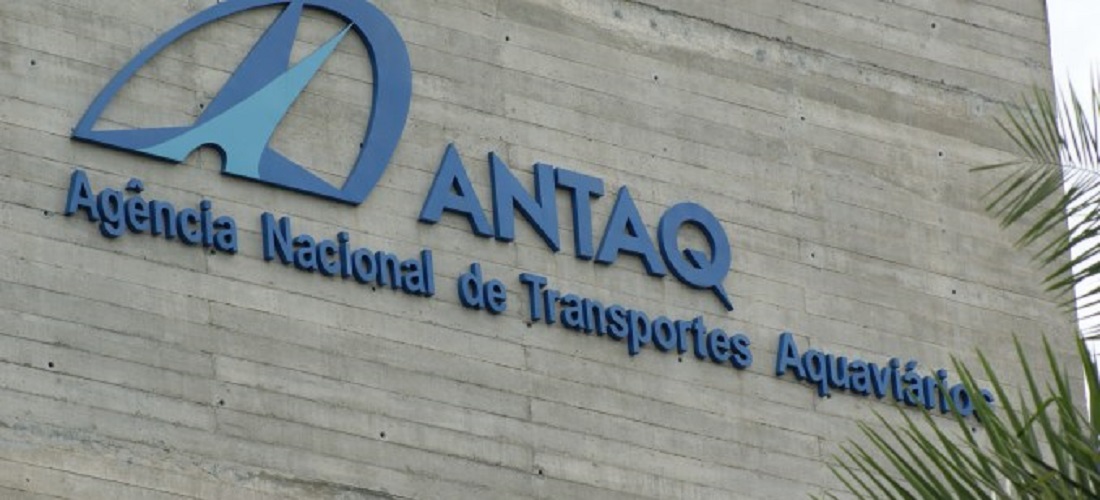
ANTAQ presents study on fees and surcharge regulations for maritime container transport
Jul, 10, 2021 Posted by Ruth HollardWeek 202128
On July 7th, ANTAQ presented the study “International Experience in the Regulation of Rates and Surcharges for Maritime Transport of Containers.” The Development and Studies Manager, José Gonçalves Neto, and the specialists in waterway transport services regulation, Rodrigo Trajano and Diego Amorim, gave the presentation, which is part of the agency’s study launch cycle – 2021.
The first part of the presentation dealt with the structuring and composition of maritime freight, which is the remuneration of waterway transport. “Despite the legal definition, the uses and customs included several additions to the basic freight, which individualize the total cost of the service and adapt it to each specific situation,” highlighted Trajano.
Pursuant to Law No. 10.893/04, the AFRMM duty (the additional freight for renewal of the merchant marine) is levied on freight. Freight is the remuneration for waterway transportation of cargo of any nature unloaded in a Brazilian port. It is the amount paid for the transport of cargo from port to port, including all port expenses with the handling of cargo, before and after this transport, and other expenses of any nature related to it.
According to the study, ocean freight has the following functions: dealing with stable costs, deal with fluctuating costs, provide value-added services, encouraging certain behavior, and dealing with extraordinary circumstances.
The presentation also highlighted the negotiation of the purchase and sale contract, which has three phases: preliminary, negotiation, and contractual. “In the negotiation phase, the freight values, fees, surcharges, and any other charges should already or should be known,” stated Trajano.
Regarding the contracting of international maritime transport, Trajano pointed out that the transport contract is autonomous, despite the interconnection with the purchase and sale contract between the importer and the exporter. “The effectiveness of the transport contract starts when the shipper delivers the cargo to the carrier and receives the bill of lading (BL). At that moment, the shipper accepts the terms of the transport contract”, explained Trajano.
Trajano highlighted that Law No. 10.233/01 establishes free prices for services, tariffs, and freight but emphasizes the need for an environment of free and open competition. He also stated that “competition is hampered without transparency of information. Transparency is what makes conscientious hiring possible, allowing competition to lower costs and increase the quality of services”, emphasized the specialist, noting that the Regulatory Agency’s repression by the Regulatory Agency of facts and actions that configure or may configure imperfect competition or infractions of the economic order is a general guideline in Law 10.233/01.
During the presentation, the regulation of fees and surcharges for container maritime transport in the United States, the European Union, and China was detailed.
In relation to fees and surcharges in Brazil, Resolution No. 7,586-ANTAQ, of February 27, 2020, states that the establishment of prices, freight, fees, and surcharges applicable to maritime support, port support, cabotage, and long-distance navigations course must meet the Agency’s current regulations and the following premises: triggering event; service(s) to which they apply; calculation basis; and period of application.
As the study concluded, surcharges were created to reimburse specific and temporary costs, but they took on new functions and grew in importance. “In general, there is no negotiation of conditions and values for fees and surcharges. Transparency and open disclosure are essential to creating an environment of free and open competition, in addition to reducing litigation,” said the expert.
-
Commodities
Jul, 26, 2024
0
Commodities Ranking for East Coast South America | Jan-May 2024 vs. Jan-May 2023 | DataLiner
-
Coffee
Apr, 25, 2022
0
Coffee: USDA estimates a 5% increase in imports from China in 2021/22
-
Ports and Terminals
May, 26, 2020
0
Infrastructure Ministry devolves power to auction port facililties to São Francisco do Sul Port
-
Trade Regulations
Jul, 18, 2019
0
Brazil wants car and sugar in the Mercosur customs union


